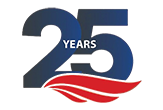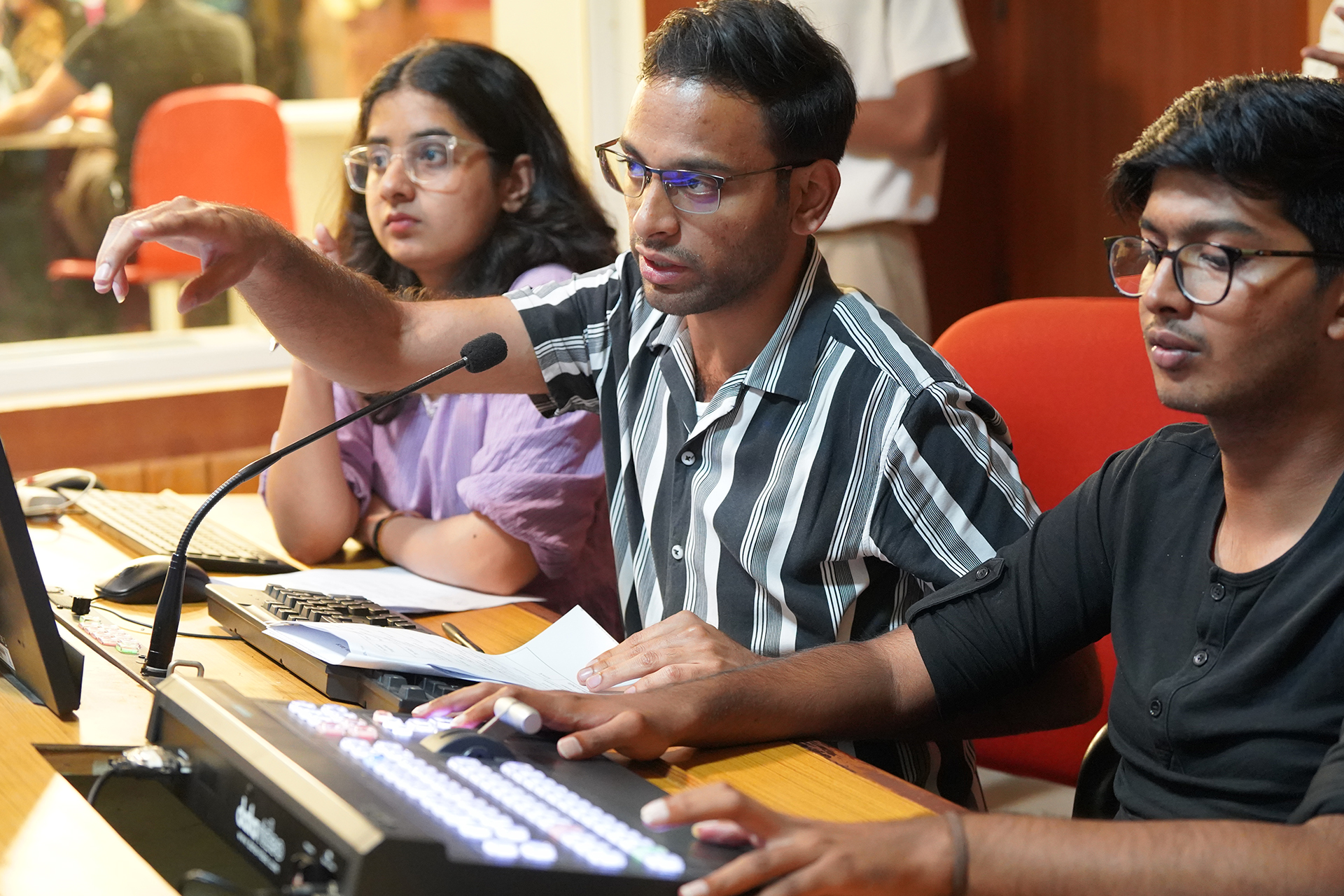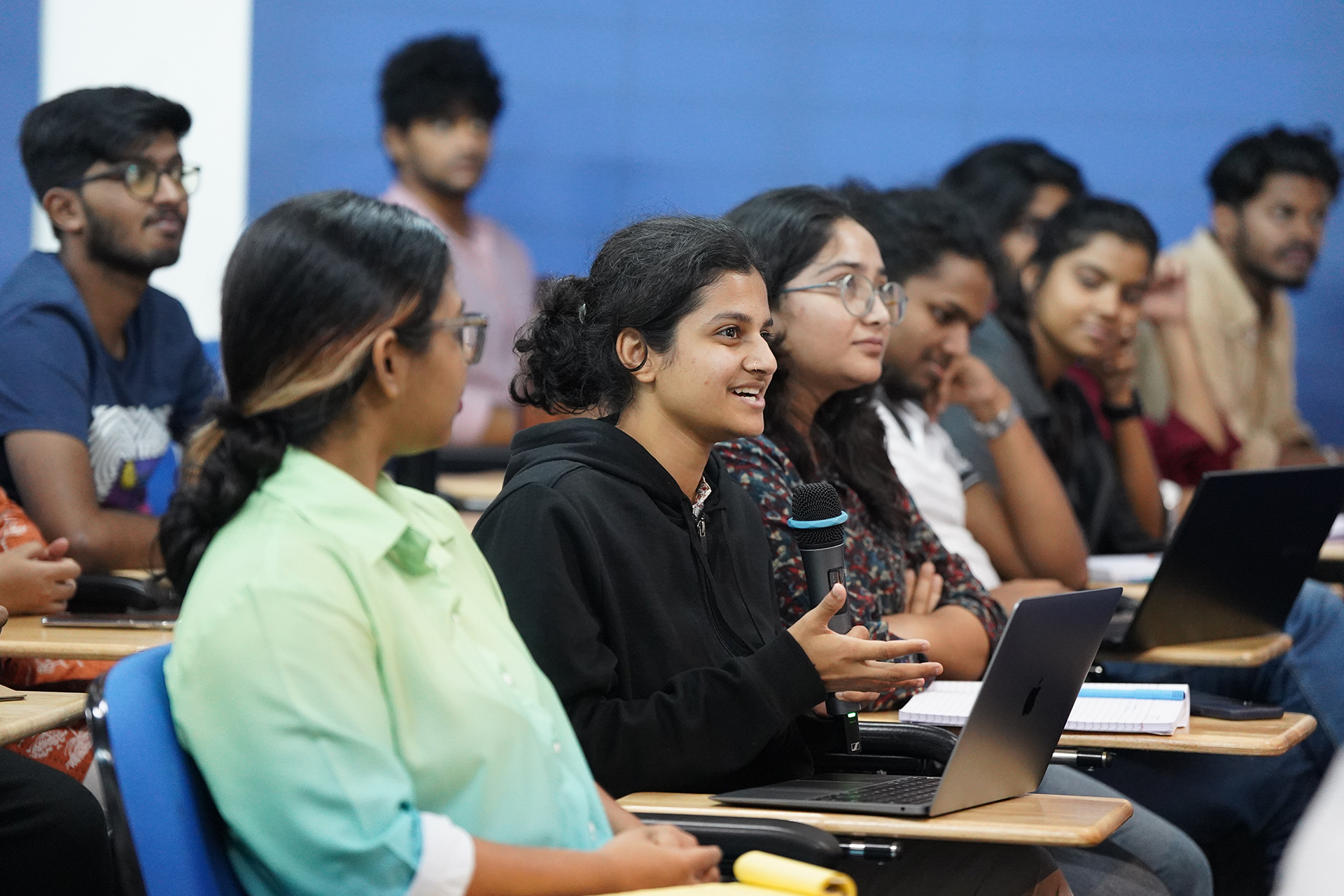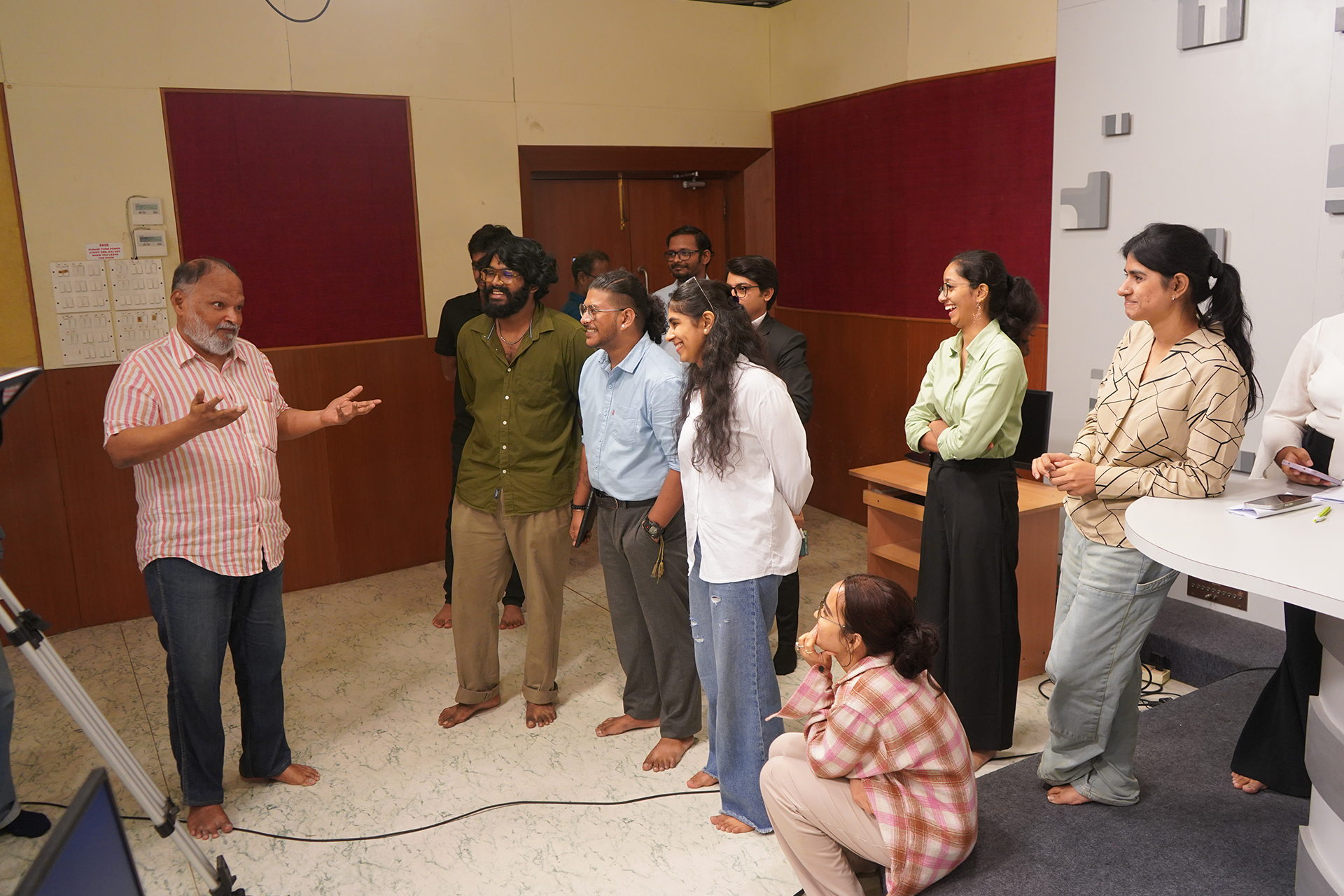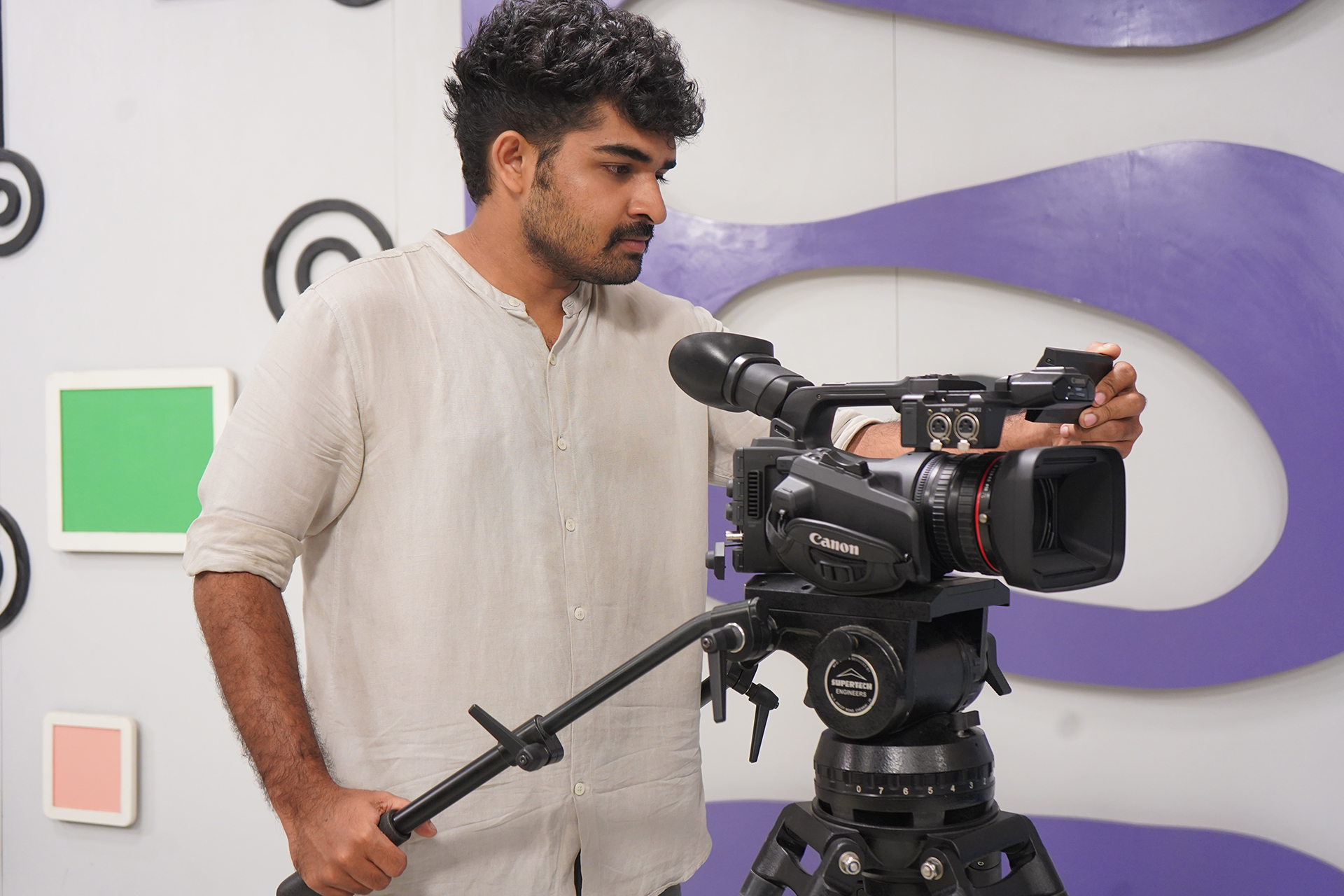Core Courses
The ‘why’ of journalism points the journalism student in the direction of content-related courses. These comprise ‘core courses’ in Semester One, ‘elective courses’, which are spread over Semester One and Semester Two, and a Dissertation or Long-Form Paper.
In the first 10 weeks of Semester One, there are four compulsory core courses – Key Issues in Journalism (Part I), Media Perspectives, Media, Law, and Society, and Tools of the Modern Journalist. In the 11th week of Semester One, students will have exams in these core courses.
Part I of Key Issues in Journalism consists of important readings from Indian nationalist leaders like M.K. Gandhi, Jawaharlal Nehru, and Rabindranath Tagore, apart from those related to race relations, gender studies, Hindu nationalism, democracy and communism. Part II of Key Issues in Journalism comprises special lectures presented throughout the academic year. The exam for Part II will be conducted in Semester Two.
Media Perspectives discusses the history of the media pertaining to developments in the press, broadcast, and digital media. Media, Law and Society relates to relevant provisions in the Indian Constitution and to jurisprudence. Tools of the Modern Journalist comprises three parts – Photojournalism, Newspaper Design, and News and Numbers.
From the 12th to the 24th week in Semester One, students are exposed to lectures on the subject, Covering Deprivation, which is the signature course of the Asian College of Journalism. Students are tested on these lectures in mid-December in the form of an open-book exam.
Around the same time, in the 12th week of Semester One, students are expected to choose viable topics for their Dissertation (5,000 to 8,000 words) and get these vetted by their assigned mentors. Over the next five months or so, students are encouraged to work steadily on their dissertations, so that they can submit the completed paper in mid-March, and finally submit to a viva voce by an appointed supervisor.
Electives
There are 25-odd electives on offer every year, and these span over both semesters. Students are expected to choose three out of these. Elective subjects are wide-ranging, some of which are sports writing, science reporting, critical international issues, national politics, environmental issues, documentary film, world cinema, covering gender and women’s issues.
Streamwork
The streamwork across two semesters focuses on the “how to” aspect of the journalism practice.
The new Fully Integrated curriculum will be New Age with tried and trusted methods enhanced with new technology and delivery systems; it will be Digital, blending the feet-on-the-ground and offline methods with new, emerging technology-enabled methods of newsgathering and dissemination; it will be Multi-Platform with convergence of skill sets required for Print, New Media or Broadcast. In a rapidly evolving media ecosystem, the curriculum will create self-sufficient journalists who are platform-agnostic but capable of delivering platform-specific news content.
In Semester One, students will pick up multiple storytelling skills in a seamless course that will impart the techniques used in the Print, New Media or Broadcast platforms. The hands-on curriculum will enable students to work in a newspaper, an online portal or a television channel or a media house that hosts all three platforms; or as independent journalists on their own platform.
In Semester Two, students learn advanced skills in reporting, writing, editing, storytelling, production, and apply them to accomplish nearly professional output in shorter duration. In the second semester, production in the state-of-the-art video and audio studios, and the digital Integrated Newsroom provides an experience close to the real world newsrooms.
The curriculum is continously updated in response to fast-changing media and technology ecosystems. A strong AI module and an entrepreneurial journalism component have been in its curriculam for the past two years.

